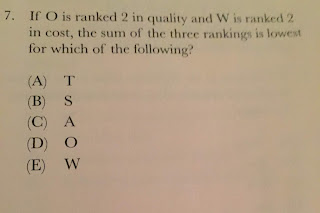Fortunately we don't live in a world where lawyers are quarantined from the general population until there's litigation at hand, so I reached out to an attorney, Dan Coury, who works in the legal department for Cigna, a medical company based in Connecticut, and asked for his advice. Our correspondence resulted in the following interview:
1. When and where did you attend law school?
I went to Qunnipiac University School of Law in Hamden, CT from 2004-2008.
2. What factors did you take into account when selecting your school?
Finances were an issue, so I was hoping to go to the highest rated academic school that would give me a full scholarship. It also needed to be driving distance (90 minutes drive max) from Torrington, CT. I got full scholarship offers from QU and WNEC (Western New England College) Law School. Quinnipiac was higher rated academically, and seemed to be a school on the rise. So I chose QU over WNEC.
3. How long did you prepare for the application cycle?
About 9 months I believe.
4. What advice do you have about financing law school?
Personally, unless you plan on shooting for a really competitive firm (which I wasn’t), I would not overspend. Go where you feel comfortable academically and financially, don’t stretch. Because no matter where you go, you take the same bar exam. Same prep courses and books and programs available for the bar exam. And once you're in the field, your work typically speaks for itself, vs what school you went to. Some career tracks it does matter; but if that’s not what your shooting for, then take the most scholarship or lowest cost. Take loans if needed too; they are usually very low interest. (Instead of killing yourself to work jobs for 4 years).
5. If you could go back and do one thing differently in your application process what would it be?
I got into every school except my alma mater, UConn, so I guess I would rewrite that essay, haha! But, I took that rejection letter from Uconn, and I put it in a frame on my wall, next to my other diplomas (undergrad and grad school from Uconn). I put it there so I had a reminder every day that I had to prove them wrong and get my law degree. It was my motivation to succeed. I eventually got my degree, suma cum laude. But I decided to leave the rejection letter up to serve as a reminder of people who doubt me along the way, and that I can prove them wrong.
6. What’s the best piece of advice that you have for prospective law students?
Don’t ever get overwhelmed. We were all in the same boat. If you made it to law school, you have what it takes to get through it. Everyone was there at one point. Don’t kill yourself with caselaw too much; it will help on exams but mostly irrelevant to the bar exam. Remember the rules themselves. The logic. Answer in IRAC (issue rule application and conclusion) any possible time you can. And be thorough in answers. Pay attention in Legal Writing. It helps in so many jobs in life.
I think there's a lot to take in here. I know that I've talked a lot in prior posts about big name schools, but it's true; unless you're trying to get into BigLaw or get a Supreme Court clerkship, a lot of firms prioritize whether or not you passed the bar, and what your other qualifications are. Finances are going to impact your future, and having a lot of debt can really change the trajectory of the rest of your life. There are always going to be personal reasons that impact where you can go. And as I've always said, you've got to do what fits your situation.


















